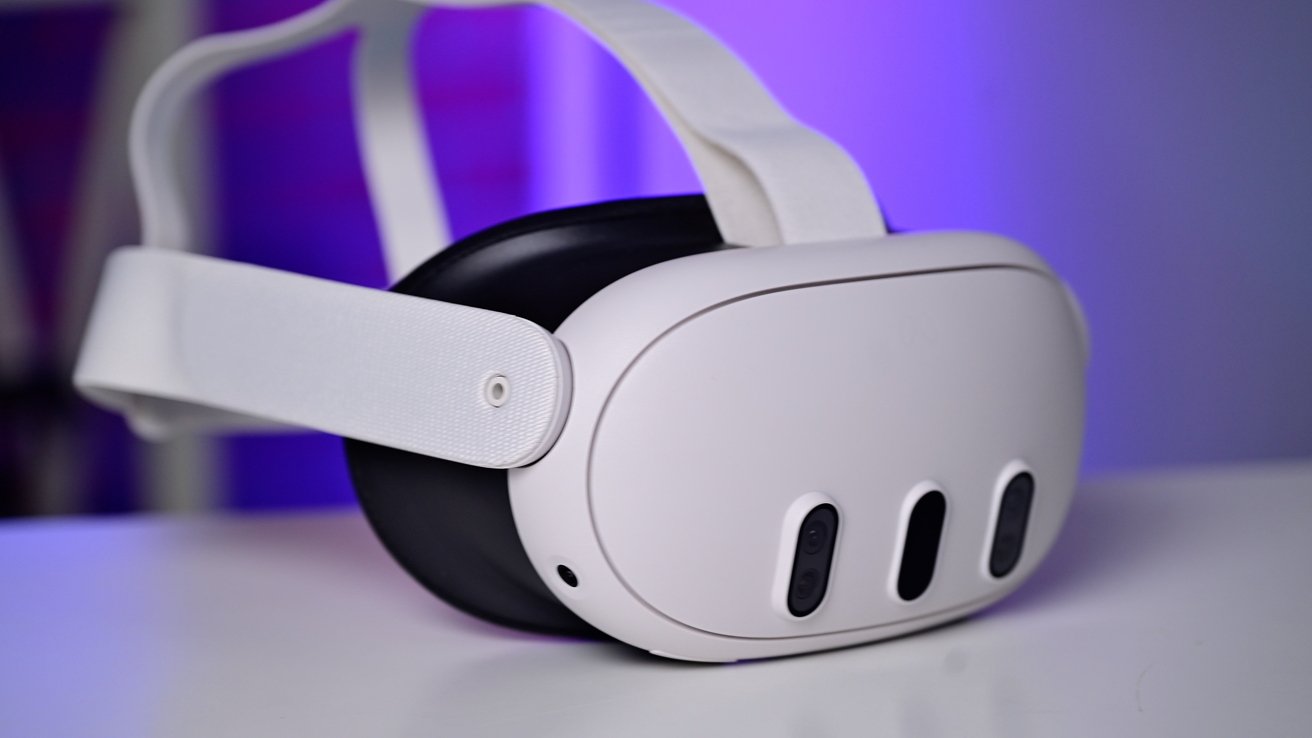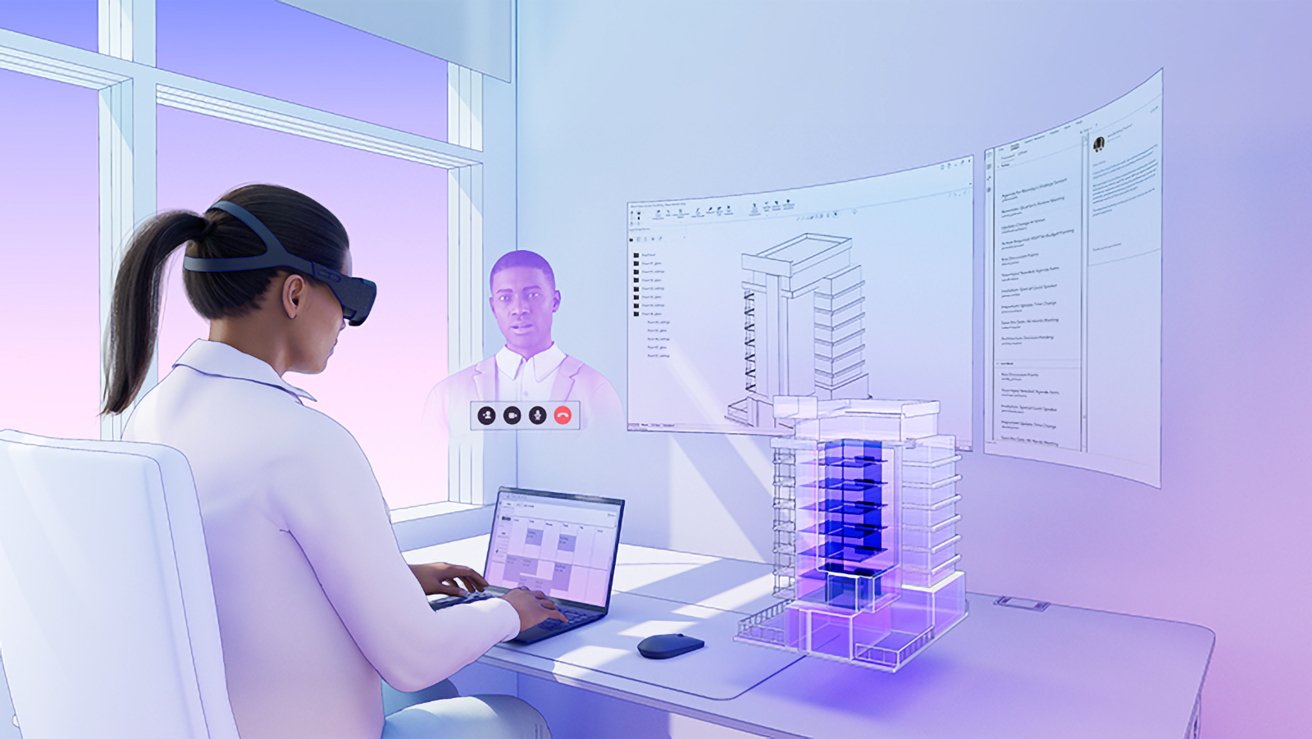Apple's Vision Pro headset is gaining traction, so Meta has opened up its VR operating system to other manufacturers to maintain its lead in a market it previously dominated.
As a newcomer in the virtual reality space, Apple's Vision Pro brings with it the formidable reputation of its creator. Established companies like Meta have been on high alert to compete with Apple.
The latest move from Meta is the Monday announcement of Meta Horizon OS. It's an attempt to open the Meta Quest platform to third-party hardware makers.
In that announcement, Meta made it clear that it has teamed up with major tech players like ASUS, Lenovo, and Xbox to bolster its hardware offerings. These collaborations are set to produce a range of devices tailored to different user needs, from gaming to productivity and entertainment.
For instance, ASUS's Republic of Gamers is crafting a performance gaming headset. Lenovo will leverage its expertise to create mixed-reality devices.
Microsoft is expected to release a Xbox-branded headset through the program as well.
Moreover, Qualcomm Technologies plays a crucial role in this ecosystem, providing the Snapdragon processors that power the Meta Quest devices. These processors are integral to delivering the high performance necessary for the sophisticated VR experiences that users demand.
Meta is also changing its app ecosystem to support the hardware expansion. Integrating the Meta Horizon Store and App Lab allows developers more freedom to market their apps and reach a broader audience.
Apple Vision Pro represents a significant challenge for Meta, even though Mark Zuckerberg doesn't seem to think so. With the Vision Pro, Apple not only enters the VR space but does so with the potential to capture a substantial market share quickly, given its brand cachet and name recognition.
Some of the images that Meta included in its announcement are a call back to the Apple Vision Pro announcement. They feature multiple VR screens for productivity and immersive gaming experiences.
"Along with a more open app store, Meta Horizon OS will continue to give people more choice in how to access apps," the announcement says.
The release also takes a dig at Apple's App Store, and points out that popular gaming services like Xbox Game Pass Ultimate and Steam Link are usable. It also notes that the company's own Air Link works for wirelessly streaming PC software to headsets.
While not Microsoft's Game Pass or Steam Link, third parties are working now on SteamVR streaming to Apple Vision Pro. And, a Mac's main screen streams to Apple Vision Pro just fine.
One thing Meta has not done in the interest of openness, though, is open its bootloader.
 Andrew Orr
Andrew Orr









-m.jpg)






 Marko Zivkovic
Marko Zivkovic
 Mike Wuerthele
Mike Wuerthele
 Christine McKee
Christine McKee
 Amber Neely
Amber Neely
 Sponsored Content
Sponsored Content
 Wesley Hilliard
Wesley Hilliard

 William Gallagher
William Gallagher









18 Comments
This will end well, *not*! Let's give up control of an enclosed ecosystem to provide a "better" customer experience?
A social media company competing with Apple on hardware/software is just silly.
It's truly odd that other companies keep looking at Apple and conclude that they must resort to the MS Windows model to compete with them.
Apple's business model is all about building the hardware and operating system software together at the same time, and exclusively as a unit. As a result their hardware and software engineering teams deal with a tiny fraction of the variables that they must accommodate as they build out the system, and they control all of them. The OS must only accommodate a handful of models (at the most) with a handful of feature variations over a few years' upgrade iterations. Over time, they know how many past model years the current OS will support, and they have a pretty good idea what future OS upgrades are in the pipeline that the current year's hardware model will support in the future.
A company like Meta opening its OS to other companies' hardware may broaden their potential install base without having to invest in hardware R&D and manufacturing capital, but it also involves vastly expanding the variables the OS must try to anticipate, while controlling or even predicting very few of them. Likewise, future OS development must either be communicated to endless manufacturers (assuring their future plans are not particularly secure), or must be kept on a tight leash, limiting manufacturers' capacity to plan and ramp up production for new models with new features. Likewise, it means Meta must deal with hardware manufactures competing with each other to add new bells and whistles, generating both OS bloat as well as OS conflicts and instability.
With all that, it's hard to understand why no one, in some category or another, has ever adopted Apple's "in house" design paradigm as the best way to compete with Apple. It's certainly a harder uphill climb to get there, but the other way always ends up being a race to the low-margin bottom.